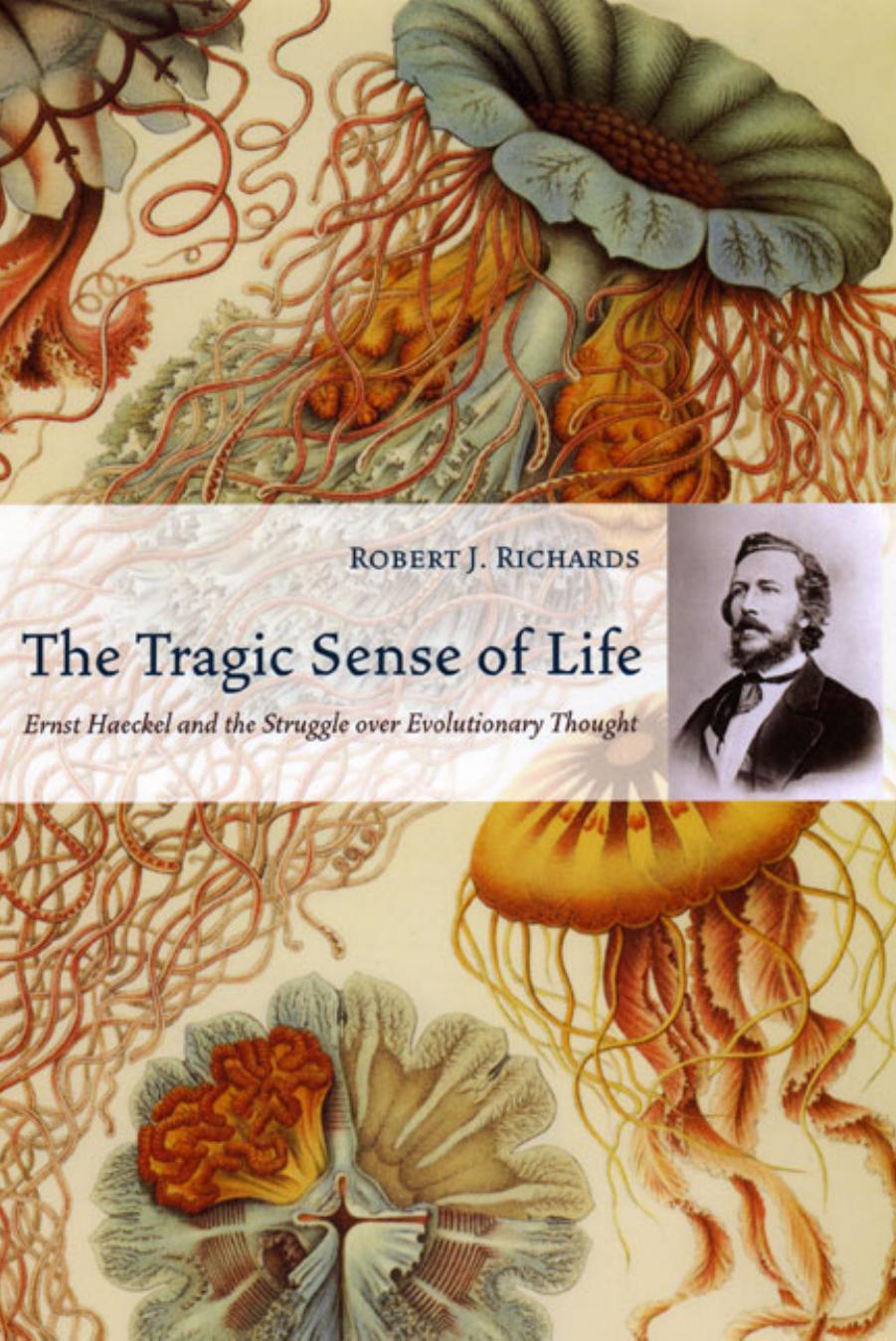The Tragic Sense of Life: Ernst Haeckel and the Struggle over Evolutionary Thought by Robert J. Richards

Author:Robert J. Richards
Language: eng
Format: epub, pdf
Publisher: The University of Chicago Press
Published: 2008-04-08T04:00:00+00:00
The Confrontation between Wasmann and the Monists
In his Berlin lectures, Haeckel took delight in referring to Wasmann as the “Darwinian Jesuit,” an ironically intended designation that yet begrudgingly suggested some respect for this Jesuit’s accomplishments in entomology.65 But he simply derided Wasmann’s rejection of a thoroughgoing evolutionism in the case of human beings: “If Wasmann assumes this introduction of the soul for the development of the type, then he must postulate in the phylogeny of the anthropoid apes a historical moment in which God descends and injects his spirit into this hitherto spiritually bereft ape soul.”66 Haeckel thought the whole assumption absurd, but not innocent of political consequence. He suspected that the conservative Prussian government would seek a union of “crown and altar” not for reasons of religious conviction but for reasons of practical advantage. He was convinced that this would be no even match; under the banner of reconciliation, the crown would become “the footstool of the altar,” as the church bent the state to its own purposes.67
When Wasmann read of Haeckel’s attack in the several newspapers that described the lectures, he penned a long open letter to his nemesis, which appeared on the front page of the morning edition of the Kölnische Volkszeitung (2 May 1905).68 He complained that Haeckel too easily identified evolutionary theory with monism, and thus misleadingly suggested that the Jesuits and the church had come over to the Darwinian side. Wasmann rejected Haeckel’s assumption of only one meaning for evolution, and he protested that his own theistic version had no official sanction from the church or the Jesuits. About this second point, Wasmann would eventually be proved mistaken: his view of evolution came to be widely accepted by the Catholic Church as a way of accommodating this latest scientific, though dangerous, advance. Under Wasmann’s orchestration, the Vatican could at last admit the world actually moved—but not too much.
The drama of the evolution-religion conflict and a sense of its high-cultural entertainment value brought Wasmann, amidst a flurry of newspaper interpretations of the debate, an invitation in 1906 to reply to Haeckel at the Sing-Akademie. He declined the offer, but a short time later did accept a comparable invitation issued by a group of prominent scientists in Berlin. Initially he was to have addressed a meeting of the entomological society, but Ludwig Plate (1862–1937), a member of the inviting committee and eventual successor to Haeckel at Jena, insisted that the meeting be open to the public.69 Wasmann agreed and he further allowed that after his three public lectures, his opponents could present their objections and he would respond. Initially some twenty-five critics requested time, but Wasmann left it up to the committee to pare down the list to something manageable.
Download
The Tragic Sense of Life: Ernst Haeckel and the Struggle over Evolutionary Thought by Robert J. Richards.pdf
This site does not store any files on its server. We only index and link to content provided by other sites. Please contact the content providers to delete copyright contents if any and email us, we'll remove relevant links or contents immediately.
Sapiens: A Brief History of Humankind by Yuval Noah Harari(14350)
Sapiens by Yuval Noah Harari(5352)
Pale Blue Dot by Carl Sagan(4988)
Homo Deus: A Brief History of Tomorrow by Yuval Noah Harari(4893)
Livewired by David Eagleman(3757)
Origin Story: A Big History of Everything by David Christian(3679)
Brief Answers to the Big Questions by Stephen Hawking(3415)
Inferior by Angela Saini(3303)
Origin Story by David Christian(3189)
Signature in the Cell: DNA and the Evidence for Intelligent Design by Stephen C. Meyer(3121)
The Gene: An Intimate History by Siddhartha Mukherjee(3086)
The Evolution of Beauty by Richard O. Prum(2977)
Aliens by Jim Al-Khalili(2815)
How The Mind Works by Steven Pinker(2809)
A Short History of Nearly Everything by Bryson Bill(2678)
Sex at Dawn: The Prehistoric Origins of Modern Sexuality by Ryan Christopher(2509)
From Bacteria to Bach and Back by Daniel C. Dennett(2474)
Endless Forms Most Beautiful by Sean B. Carroll(2466)
Who We Are and How We Got Here by David Reich(2424)
